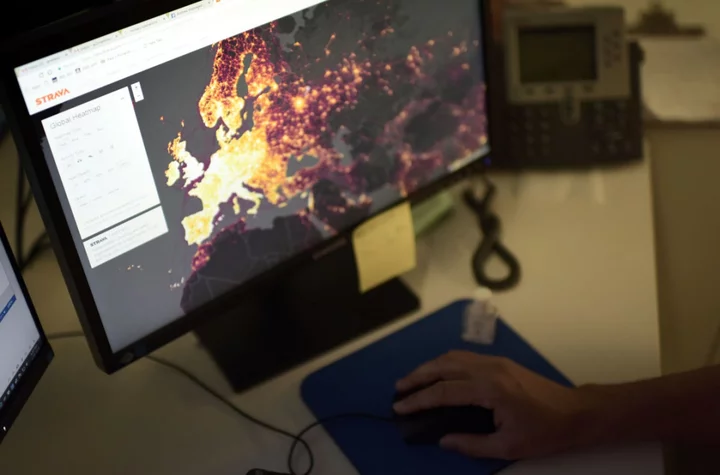
Strava responds to alarming report suggesting that it could be used to track down users
A new report claims that Strava could be used to track people down – despite the platform’s efforts to make their data anonymous. Strava is a fitness tracking platform that allows people to log their exercises as well as engage with other based on their workouts. But it also includes other tools, such as its heatmap feature, which is intended to anonymously gather together people’s journeys and show them on one map. The tool is intended to allow people to see which parts of the world are particularly active, which can be helpful for finding particularly good areas for workouts or trips. But it can also be used to find out people’s personal information, according to a new report. That heatmap data is anonymised, so that it shows more general trends and cannot be used to track specific people who might mark their routes private. But the new research suggests that it is possible to de-anonymise that data, at least in some cases, to work out who lives where. The paper, published by three computer science researchers at North Carolina State University, says that “the home address of highly active users in remote areas can be identified, violating Strava’s privacy claims and posing as a threat to user privacy”. They detailed a complicated process that they claimed was able to find addresses and then combine that with other data from Strava to find the home address of a certain individual. In short, they were able to use the heat map to identify locations where people lived, and then take other location data to work out who might live at that specific house. The attack will not work on everyone: they need to live in remote areas where people’s houses stand on their own, those users need to have the heat map setting switched on, and might run in patterns that do not identify their home addresses, for instance. But the researchers claimed that a significant number of users could be identified based on publicly available information on Strava. That is a “violation of user privacy”, the researchers said. And it could also pose a threat to those users, by allowing people’s addresses to be made public, and then matched to certain activities, such as when they work out or where they tend to travel. The researchers suggested two ways to avoid the attack. One would be to remove heat map data that is clearly near a home, and another would be to add Strava’s existing “privacy zones” tools that block out data from certain locations to its heat map, which is not currently the case. Strava said that it looks to ensure users’ data stays private, and suggested that people concerned about potential issues turn off the use of aggregated user data on their account. “The safety and privacy of our community is our highest priority. We’ve long had a suite of privacy controls (including Map Visibility Controls) that give users control over what they share and who it’s shared with,” the company said. “Strava does not track users or share data without their permission. When users share their aggregated, de-identified data with the Heatmap and Strava Metro, they contribute to a one-of-a-kind data set that helps urban planners as they develop better infrastructure for people on foot and bikes, and makes it easy to plan routes with the knowledge of the community. “The Global Heatmap displays aggregated data from a subset of Strava activities and will not show ‘heat’ unless multiple people have completed an activity in a given area. Any Strava user who does not wish to contribute to the Heatmap can toggle off the Aggregated Data Usage control to exclude all activities or default their Activity Visibility to be only to themselves (’Only You’) for any given activity. “We are consistently strengthening privacy tools and offering more feature education to give users control over their experience on Strava. This includes simplifying our Privacy Policy with our Privacy Label at the top.” Read More Breakthrough could soon allow us to actually use quantum computers, scientists say Three and Vodafone are merging. Here’s what that means for your phone McDonald’s, Delta among websites down after Amazon Web Services cloud crashes Breakthrough could soon allow us to actually use quantum computers, scientists say Three and Vodafone are merging. Here’s what that means for your phone McDonald’s, Delta among websites down after Amazon Web Services cloud crashes
2023-06-15 00:54
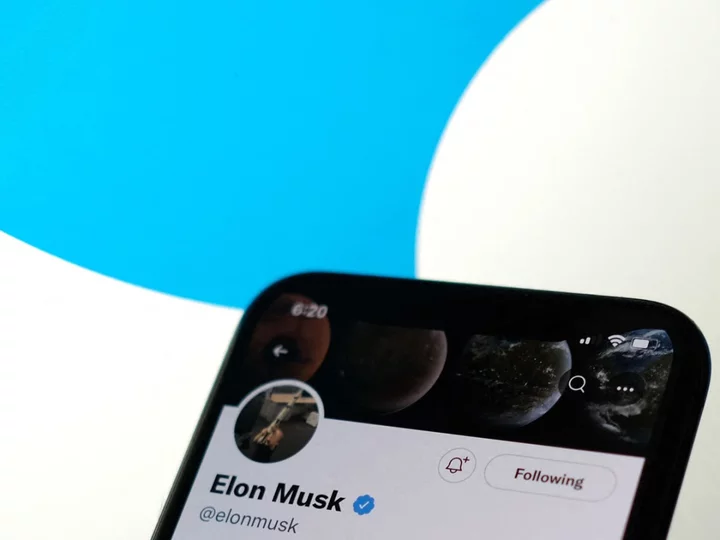
Elon Musk refuses to pay Twitter’s Google bill
Twitter is refusing to stand by a $1 billion contract with Google to use its cloud hosting services, according to reports. Elon Musk’s company is in the process of moving away from Google Cloud before the contract expires on 30 June, Platformer reported, leaving the social media firm’s trust and safety teams in peril. The move appears to be part of radical cost-cutting measures that have been underway since Mr Musk’s takeover of Twitter in October 2022, which has already seen thousands of employees laid off and a reduction in infrastructure spending. The deal with Google Cloud relates to hosting services, which include protecting accounts and fighting spam on Twitter. The effort to move to a different platform is reportedly “running behind schedule”, which could potentially impact Twitter’s ability to detect and remove spam and child sexual abuse material. Twitter did not respond to a request for comment – the company’s PR team was effectively eliminated during the lay-offs – while Google is also yet to respond. A separate report from The Information last month claimed that Twitter also delayed payments to Amazon Web Services. The latest issues come after internal documents revealed that Twitter’s advertising revenue is down by more than half since Mr Musk’s takeover. The company’s main revenue stream was initially hit by advertisers withdrawing over concerns related to the direction of the platform and its leadership, though Mr Musk claimed in April that “almost all advertisers have come back or said they are going to come back”. Twitter’s valuation since Mr Musk bought the company for $44 billion has dropped to around $15 billion, according to estimates from investment firm Fidelity. Newly-appointed Twitter chief executive Linda Yaccarino, who took over from Mr Musk last week, has been tasked with improving relationships with advertisers, while Mr Musk focuses on “overseeing product, software and sysops as the firm’s chief technology officer. Read More Twitter ad sales down by more than half since Elon Musk takeover, report claims
2023-06-12 20:26

ChatGPT Plus: OpenAI stops premium signups after major update
OpenAI has temporarily stopped people from signing up to the premium version of ChatGPT, after it proved so popular the company was unable to operate it. Just over a week ago, OpenAI held a developer conference in which it announced a range of new features, including a faster version of its chatbot and access to the new GPTs feature that lets people make their own versions of ChatGPT. Many of those new tools are limited to subscribers to ChatGPT Plus, the paid-for version that also offers fewer restrictions on how much ChatGPT can be used. Now, however, OpenAI is “pausing” new sign-ups “for a bit”, its chief executive Sam Altman announced. The interest in those tools had proven too much for the company to deal with. “we are pausing new ChatGPT Plus sign-ups for a bit :(,” he wrote on Twitter. “the surge in usage post devday has exceeded our capacity and we want to make sure everyone has a great experience. you can still sign-up to be notified within the app when subs reopen.” Mr Altman’s announcement came after a run of technical issues in the wake of the new announcements. Since the event was held on 6 November, there have been six days of outages, according to OpenAI’s official status tracker, including one major outage that took ChatGPT offline for almost two hours. In the weeks before that, OpenAI had seen no downtime at all, according to the same page. ChatGPT Plus was launched in February, for $20 per month. Since then, OpenAI has added a range of new features to the offering, including those announced at its recent developer conference. The company says that the premium offering supports it work in making ChatGPT available for free. Artificial intelligence work is notoriously expensive because of the complex calculations required to answer a question, and so the free version of ChatGPT operates at a considerable loss. “We love our free users and will continue to offer free access to ChatGPT,” OpenAI’s website says. “By offering this subscription pricing, we will be able to help support free access availability to as many people as possible.” Read More ChatGPT creator mocks Elon Musk in brutal tweet ChatGPT goes offline ChatGPT update allows anyone to make their own personalised AI assistant
2023-11-16 02:18

Take-Two forecasts second-quarter net bookings below estimates
(Reuters) -Take-Two Interactive Software forecast second-quarter net bookings below Wall Street targets on Tuesday, in a sign that spending on
2023-08-09 04:25
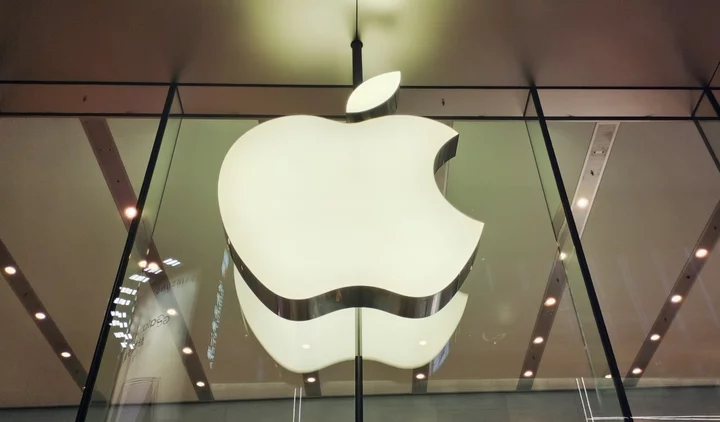
Apple's iPhone 15 Pro Max may come a month later than expected
Apple's iPhone 15 Pro Max may come a month later than the other iPhone 15
2023-08-22 22:56
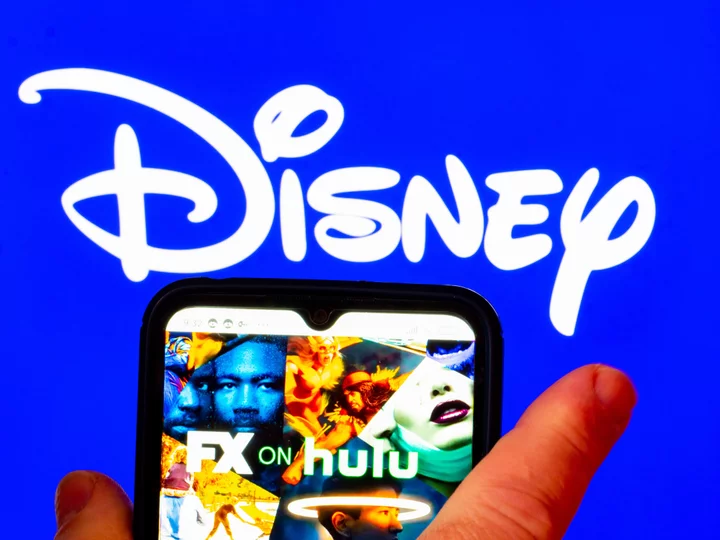
Disney+ and Hulu will purge over two dozen more shows. Here's the list so far.
Sound the klaxon: The Disney+/Hulu purge has begun. The disturbing trend of streaming originals and
2023-05-19 12:25

Avery Dennison Commissions Europe’s Largest Concentrated Solar Thermal Platform and Thermal Storage Unit in Turnhout, Belgium
TURNHOUT, Belgium--(BUSINESS WIRE)--Sep 6, 2023--
2023-09-06 20:27

Columbia University Launches New Institute of Global Politics
NEW YORK--(BUSINESS WIRE)--Sep 7, 2023--
2023-09-08 00:51
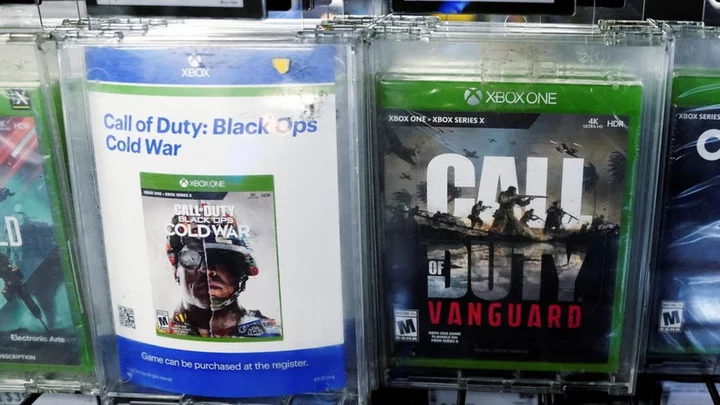
US moves to block Microsoft's Activision takeover
Regulators have asked a judge to block the proposed deal, arguing it could harm competition levels.
2023-06-13 17:18

Has Adept been married to xQc for 3 years? Streamer discusses latter's 'sexual night terrors' while showing her 'wedding ring'
In one of her Twitch live streams, Adept claimed the ring she was wearing was her 'wedding ring' that xQc gave her
2023-06-01 19:19
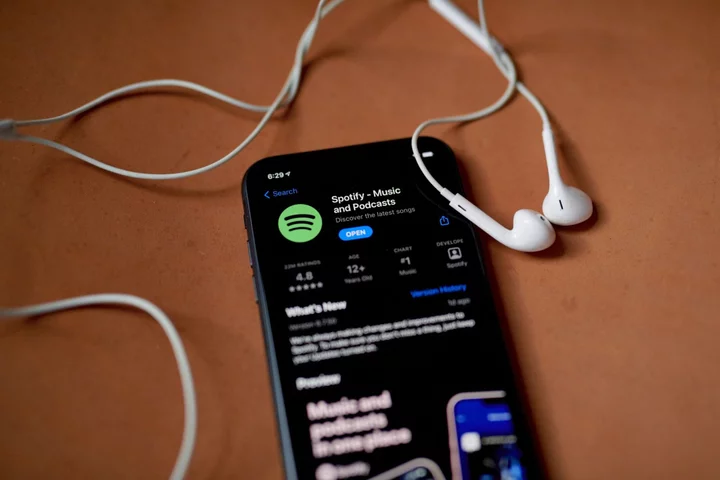
Spotify Will Lay Off 2% of Workforce, or 200 Employees
Spotify Technology SA will lay off 2% of its employees, or 200 people, primarily in its podcast division,
2023-06-05 22:25
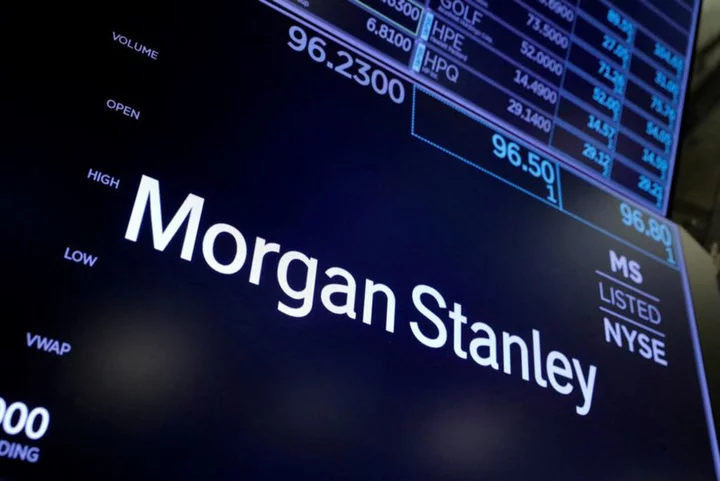
Morgan Stanley to launch AI chatbot to woo wealthy
By Tatiana Bautzer and Lananh Nguyen NEW YORK Wealthy clients going to a Morgan Stanley banker to discuss
2023-09-07 18:26
You Might Like...
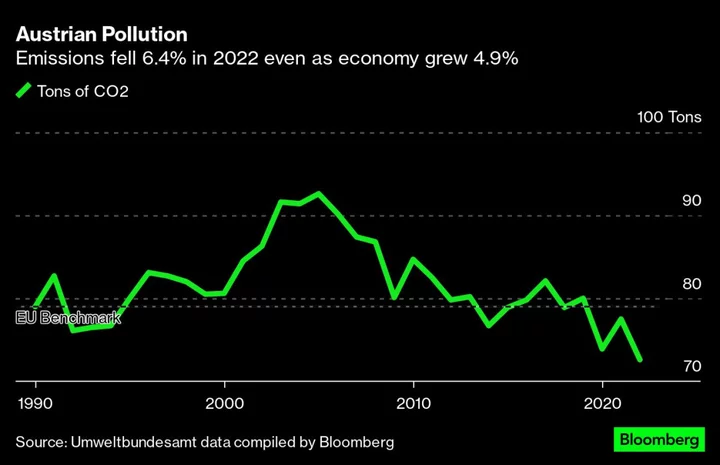
Energy Crisis, War Inflation Drive Down Austria’s CO2 Pollution
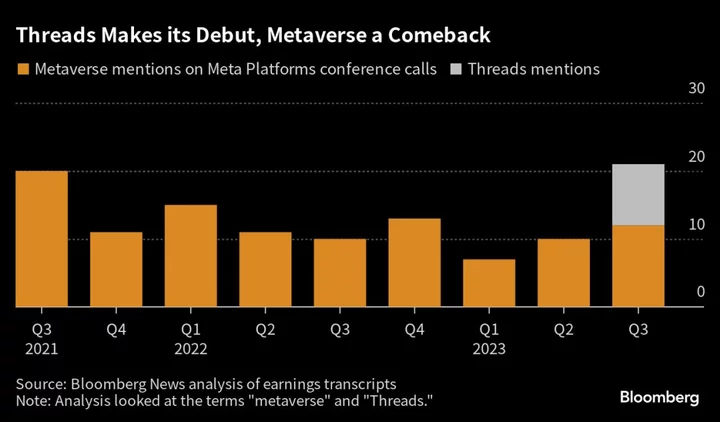
AI Mentions on the Rise in Tech Earnings Calls as Recession Talk Fades

Is Madison Beer dating FaZe Kaysan? Singer addresses rumors on Kai Cenat stream

17 Things You Might Not Know About Tammy Duckworth
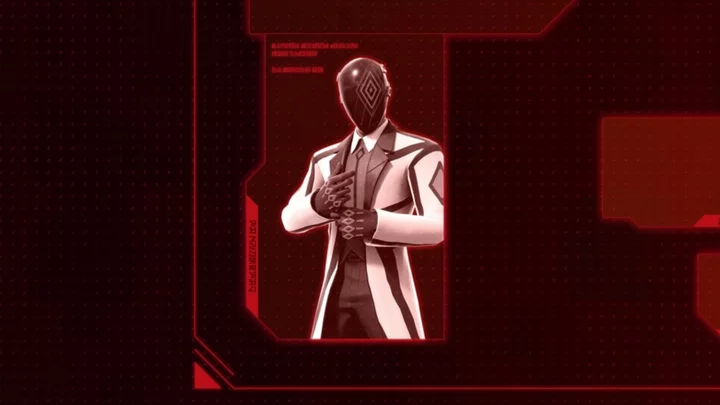
Fortnite Chapter 4 Season 4 Battle Pass Skins Leaked

Siemens and UCLA say data compromised in MOVEit data breach

UFC 5 Game Modes Explained

Is MTG Lord of the Rings: Tales of Middle Earth Standard Legal?
